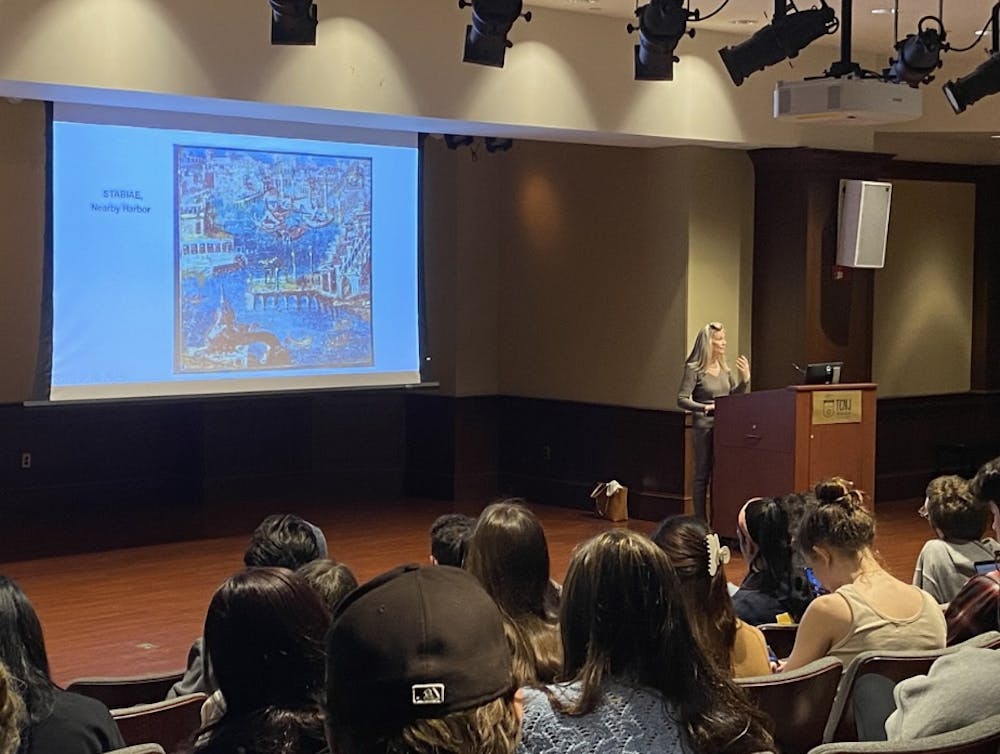By Grace Murphy
Staff Writer
The Italian Club, Italian program and the Department of World Languages and Culture came together to sponsor the “Everyday Life in Pompeii” lecture with guest speaker Dr. Snejzana Smodlaka on Feb. 15 in the library auditorium. She presented a slideshow of photos of excavated objects from Pompeii that helped to determine how the people of that civilization lived.
The presentation included photos such as frescoes, streets and remains of buildings like homes and theaters. Smodlaka then explained the conclusions that have been drawn from the photos about how people socialized, found entertainment, spent leisure time and lived their everyday lives.
“There is an enormous amount of excavated objects that, from which we can conclude, more or less, how their life was before the eruption,” Smodlaka said.
Smodlaka, an art historian and literary critic, has conducted research, specifically in Italian literature, figurative arts and opera. She gained her Ph.D. in Italian Literature at Rutgers University, and she met Dr. Simona Wright, an Italian professor at the College, in graduate school.
Wright took charge in setting up the event. This same event was first held in 2019, and this was the first year it has been brought back since Covid-19.
“My goal is really to engage the students in understanding different aspects of Italian culture and civilization,” Wright said. “I want the students to come away with a sense of the complexity of history, and to get a deeper perspective of all the contribution of Italian culture to modernity.”
The library auditorium was filled with students attentively taking notes. One of these students was freshman biology major Paulina Rust.
“I liked that the speaker showed photos of the architecture and structure of the buildings throughout the presentation which helped me imagine what the area looked like during that time,” Rust said.
Bella Lopa, freshman kinesiology and health sciences major, also took an interest in the topic as she learned about Pompeii during her four years of Italian in high school.
“I learned about how drastic the volcano was to the city, but it was interesting to see how they were still able to remodel some significant areas in Pompeii,” Lopa said.
Wright explained that she hoped that this presentation would teach students about a world that no longer exists, while also influencing them to learn more about this civilization.
“There is so much knowledge that, like Pompeii, needs to be dug out,” Wright said. “I hope that is also one of the objectives: to redirect students’ attention and curiosity to things that are so valuable for them, for their present and for their future.”
The Italian Club takes an annual trip to Eataly in New York to enjoy Italian cuisine and to enjoy an end-of-year event celebrating the culture. They also host different Italian-themed events throughout the year and meet on Wednesdays. For more information on the Italian Club, visit their Instagram @ItalianClubTCNJ.







